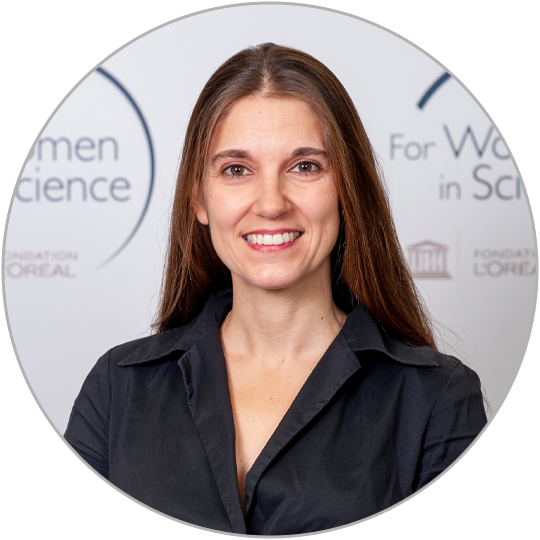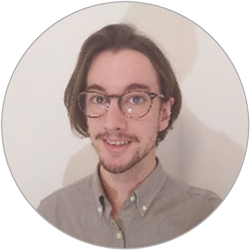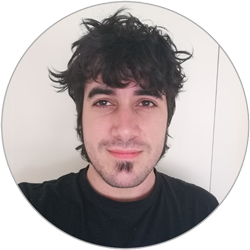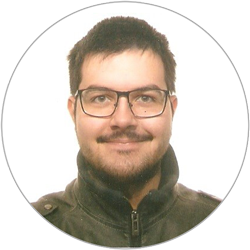Rovira Group
Pancreas regeneration: pancreatic progenitors and their niche
Type 1 diabetes is caused by an autoimmune destruction of pancreatic β cells. These cells are the source of insulin, a hormone required for the regulation of blood glucose levels. One approach to recovering glucose homeostasis would be to induce restoration of β-cell mass, either by replacement with exogenous cells or by regeneration from endogenous progenitors, but the existence of such progenitors is still controversial. Rovira’s lab is focus in the role of ductal cells as pancreatic progenitors in order to develop new therapies for diabetes treatment. On the other hand the lab is also studying the niche required for pancreatic progenitor maintenance.

Meritxell Rovira
Principal Investigator, Regenerative Medicine Program of IDIBELL
Ramon y Cajal Principal Investigator, Department of Physiology Science II, University of Barcelona
Associated Group Leader of P-CMRC
Are there facultative progenitors in the adult mammalian pancreas?
Type 1 diabetes is caused by an autoimmune destruction of pancreatic β cells. These cells are the source of insulin, a hormone required for the regulation of blood glucose levels. One approach to recovering glucose homeostasis would be to induce restoration of β-cell mass, either by replacement with exogenous cells or by regeneration from endogenous progenitors, but the existence of such progenitors is still controversial. Moreover, the niche required to control the rate of stem cell proliferation, determine the fate of stem cell daughters, and protect stem cells from exhaustion or death has not yet been identified in the adult pancreas.
Why it matters
Diabetes mellitus is a metabolic disorder characterized by loss or dysfunction of pancreatic β cells. Over 425 million people worldwide suffer from diabetes, this number is increasing and is expected to rise up to 642 million in 2040, making diabetes a major public health issue worldwide.
The average annual cost for a T1D patient in Spain was 27.274 € in 2017. Direct healthcare costs was 4070 € and direct non-healthcare cost was 23,204 €. Thus, diabetes is a major cost in the Spanish health care, for its incidence and for the need of healthcare support for the patients for life. Importantly this cost increases do to the complications related to the pathology: 1) Microvascular Complications: eye, kidney, and nerve diseases and 2) Macrovascular complications: the heart and pregnancy complications. Thus, there is a clear need to develop therapies to maintain normoglicemia in diabetic patients to avoid or reduce T1D complications. Moreover, curing T1D requires the restoration of β cell mass. Therefore, our project focused in the generation of insulin producing cells form adult pancreatic progenitors in organoid cultures can provide the basis for developing regenerative therapies in human diabetes, either through manipulation of pancreatic exocrine tissue from donors in vitro, and their subsequent transplantation, or through in vivo or in vitro manipulation of patients’ pancreatic duct cells. These newly formed insulin producing cells should be ultimately encapsulated to avoid the immune system destruction.
Job openings
Postdoctoral Fellowship In Pancreas Regeneration
IDIBELL-University of Barcelona is seeking a highly motivated postdoctoral fellow to join our new group in the Regenerative Medicine Program (Rovira’s Group: Pancreas regeneration: pancreatic progenitors and their niche) at IDIBELL and Department of Physiological Science at UB-Bellvitge
Keywords
Adult progenitors, Regenerative Medicine, Epigenetics, Transcriptomics, Niche, Pancreas, Organoids
Publications
Solomon Afelik* and Meritxell Rovira*. Pancreatic β-cell regeneration: advances in understanding the genes and signaling pathways involved. Genome Medicine. 05/2017. Review. *Corresponding authors.
Solomon Afelik* and Meritxell Rovira*. Pancreas β-cell regeneration: facultative or dedicated progenitors? Molecular and Cellular Endocrinology. 445:85-94. 04/2017. Review. *Corresponding authors.
Rebecca L. Beer RL*, Michael J. Parsons, Meritxell Rovira*. Centraocinar cells: At the center of pancreas regeneration. Developmental Biology. Volume 413, Issue 1, 1 May 2016, Pages 8–15. Review. * Corresponding authors.
Fabien Delaspre*; Rebecca L. Beer*; Meritxell Rovira; Wei Huang; Guangliang Wang; Stephen Gee; Maria Del Carmen Vitery; Sarah J. Wheelan; Michael J. Parsons. Centroacinar cells are progenitors that contribute to endocrine pancreas regeneration. Diabetes. pp 3499-509. 07/2015. ISSN 1939-327. *authors contributed equally to this work.
Inês Cebola*; Santiago A. Rodríguez-Seguí*; Candy H.-H*. Cho; José Bessa*; Meritxell Rovira*, Mario Luengo; Mariya Chhatriwala; Andrew Berry; Joan Ponsa-Cobas; Miguel Angel Maestro; Rachel E. Jennings; Lorenzo Pasquali; Ignasi Morán; Natalia Castro; Neil A. Hanley; Jose Luis Gomez Skarmeta; Ludovic Vallier; Jorge Ferrer. TEAD and YAP regulate the enhancer network of human embryonic pancreatic progenitors. Nature Cell Biology. 17 – 5, pp. 615 – 626. 05/2015. ISSN 1476-4679. *authors contributed equally to this work.
Meritxell Rovira*; Jorge Ferrer*. Weaning gives β cells license to regenerate. Developmental Cell. 32 – 5, pp. 531 -532. 03/2015. ISSN 1878-1551. *corresponding authors. Editorial.
Meritxell Rovira; Wei Huang; Shamila Yusuff; Joong Sup Shim; Anthony A Ferrante; Jun O Liu; Michael J Parsons. Chemical screen identifies {FDA-approved} drugs and target pathways that induce precocious pancreatic endocrine differentiation. Proceedings of the National Academy of Sciences of the United States of America. 108 -48, pp. 19264 – 19269. 11/2011. ISSN 1091-6490
Yiyun Wang; Meritxell Rovira; Shamila Yusuff; Michael J Parsons. Genetic inducible fate mapping in larval zebrafish reveals origins of adult insulin-producing β-cells. Development (Cambridge, England). 138 – 4, pp. 609 -617. 02/2011. ISSN 1477-9129
Meritxell Rovira; Sherri-Gae Scott; Andrew S Liss; Jan Jensen; Sarah P Thayer; Steven D Leach. Isolation and characterization of centroacinar/terminal ductal progenitor cells in adult mouse pancreas. Proceedings of the National Academy of Sciences of the United States of America. 107 – 1, pp. 75 – 80. 01/2010. ISSN 1091-6490
Meritxell Rovira; Fabien Delaspre; Mohammad Massumi; Selma A Serra; Miguel Angel Valverde; Josep Lloreta; Marlène Dufresne; Bruno Payré; Stephen F Konieczny; Pierre Savatier; Francisco X Real; Anouchka Skoudy. Murine embryonic stem cell-derived pancreatic acinar cells recapitulate features of early pancreatic differentiation. Gastroenterology. 135 – 4, pp. 1301 – 5. 10/2008. ISSN 1528-0012
Meritxell Rovira; Judit Jané-Valbuena; Mélanie Marchand; Pierre Savatier; Francisco X Real; Anouchka Skoudy. Viral-mediated coexpression of Pdx1 and p48 regulates exocrine pancreatic differentiation in mouse ES cells. Cloning and Stem Cells. 9 – 3, pp. 327 – 338. 2007. ISSN 1536-2302
Members





